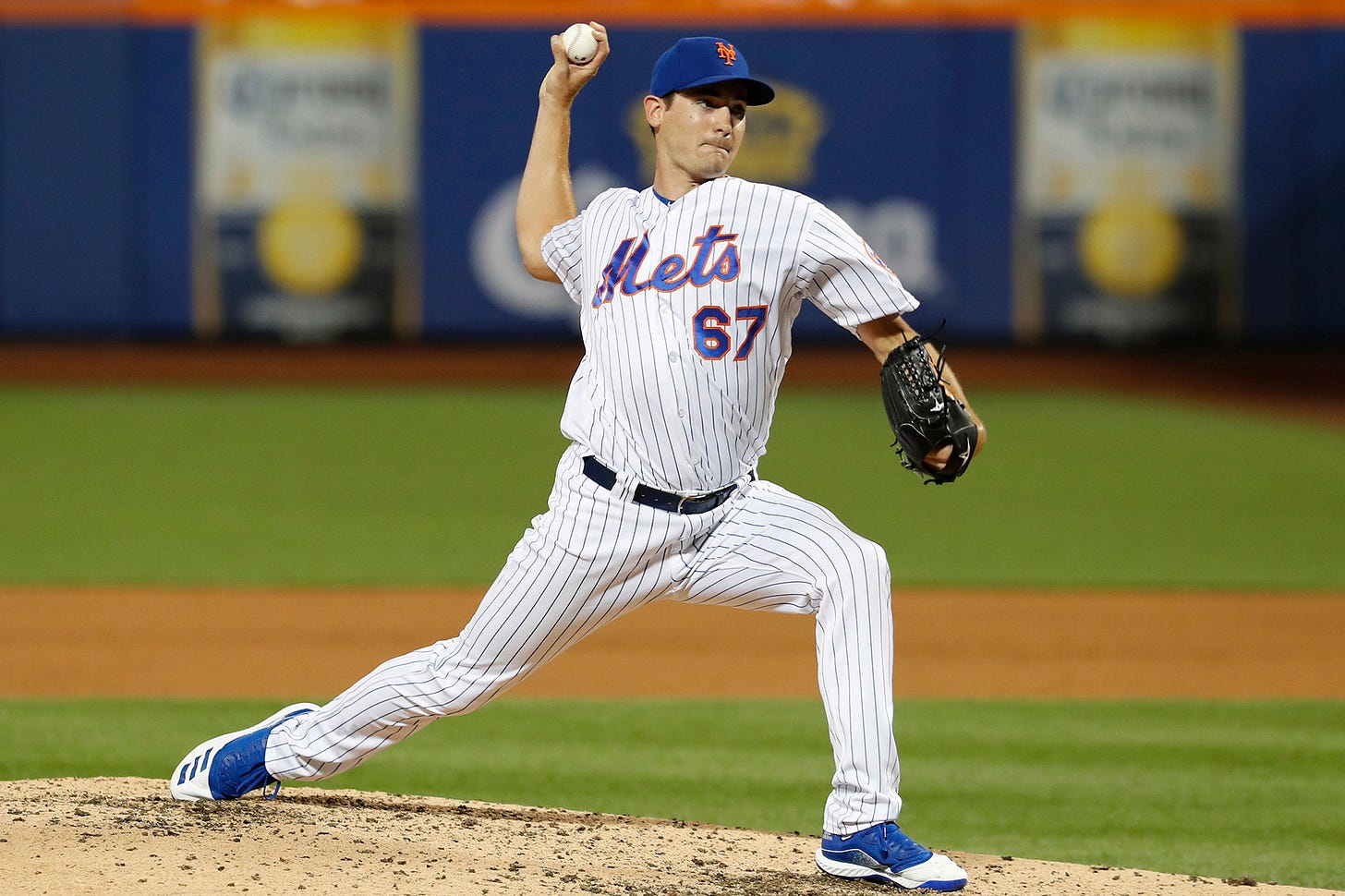The Nature of Bullpens
The 2021 Mets' bullpen will likely be disappointing — because that's what bullpens do.
Have the Mets ever had a satisfactory bullpen?
Seriously, think about the question. Sure, there have been teams that we now look back on and say, “hey, that bullpen was pretty good.” But has there ever been a Mets team that fans looked at contemporaneously, and thought to themselves, “you know, I think our bullpen is good enough”?
Probably not. That’s really just the nature of bullpens. They’re almost definitionally disappointing. The bullpen is materially different from the other elements of a team. The offense has its job: hit pretty well. The starters have their job: pitch pretty well. The bullpen, meanwhile, is entrusted with a different job: hold the lead.
The difference should be obvious. The offense and starting pitching can get their jobs done without being perfect, or even all that great. A pitcher who goes six innings and allows three runs has more or less done his job, even if the team loses. An offense that scores a few runs per game is pretty much successful, even if the other team scores more. There’s no dictionary definition, no exact template, and an offense or a group of starting pitchers meeting expectations isn’t irrevocably tied to wins and losses.
The bullpen, on the other hand, has to do its job perfectly. If the Mets lead when a starting pitcher leaves a game, and surrender that lead before the game ends, the bullpen has failed. The bullpen’s expectation is to hold leads, and obviously, no bullpen can hold every lead. So almost every bullpen, no matter how dominant, ends up being remembered for its failures, those few times when it couldn’t hold the leads that mattered. Baseball seasons, of course, often end up decided by a few games either way, so it’s fairly easy to blame the outcome of an entire season on a few bullpen failures, even though in terms of actual on-field contribution, other elements of a team almost always have more to do with outcomes than a few relief pitchers.
Which reminds me: how is the Mets’ bullpen shaping up?
As most bullpens do, the 2021 Mets relief corps, at the moment, looks solid enough, but frighteningly susceptible to implosion. At the top of the pen, the Mets have Edwin Díaz, Trevor May, and — assuming they don’t use him as a starter — Seth Lugo. All three are capable of delivering quality innings. All three are also capable, for their own reasons, of completely falling apart. Lugo is pitching with an injured elbow; May has had injury problems of his own; Díaz has been inconsistent over his Mets tenure, and will always remind us of Jarred Kelenic.
Behind those three, the Mets have a trio of inconsistent relief options with at least some upside: Dellin Betances, Brad Brach, and Jeurys Familia. None of the three was particularly good last season. With a 3.71 E.R.A., Familia wasn’t terrible, but for a once-fearsome relief pitcher, that’s not much. Brach, a year after the Cubs released him and he rediscovered his stuff with the Mets, regressed and put up a 5.84 E.R.A. Betances, coming over from the Yankees, pitched to a 7.71 E.R.A. in his first season as a Met. Whether he can rediscover the form that led to a 2.36 E.R.A. over eight seasons with the Yankees remains to be seen.
Behind these three, meanwhile, the Mets have an assortment of more-or-less capable pitchers. There’s Miguel Castro, whose E.R.A. was around 4.00 last season; Jerry Blevins, recently reacquired on a minor-league deal, and Daniel Zamora, who didn’t pitch in the major leagues in 2020 but has been solid, in his career, against lefties.
The bullpen may not yet be finalized. Recent reports say the Mets are interested in Liam Hendriks, who has pitched to a 1.79 E.R.A. the last two seasons. They should also strongly consider re-signing Justin Wilson, who pitched to a 2.91 E.R.A. over his last two years as a Met and has been almost equally effective against righties and lefties. Wilson is at his best when it’s most important. In 2019, for instance, his E.R.A. was 0.71 in save situations. Opposing batters had a .938 OPS in innings 4-6, .648 in innings 7-9, and .583 in extras.
The Mets’ bullpen is far from a sure thing. That’s usually the case. Trevor May and Jerry Blevins will help; so will signing Liam Hendriks, and if the Mets move Lugo back to the bullpen where he’s at his best, that will help too. The pen will blow some leads, although hopefully not too regularly; all the decision-makers can do is assemble the best group of relievers they can, then hope and pray. The Mets’ bullpen won’t be perfect: that’s just the nature of life. In fact, it will probably be disappointing. But that’s just the nature of bullpens.




